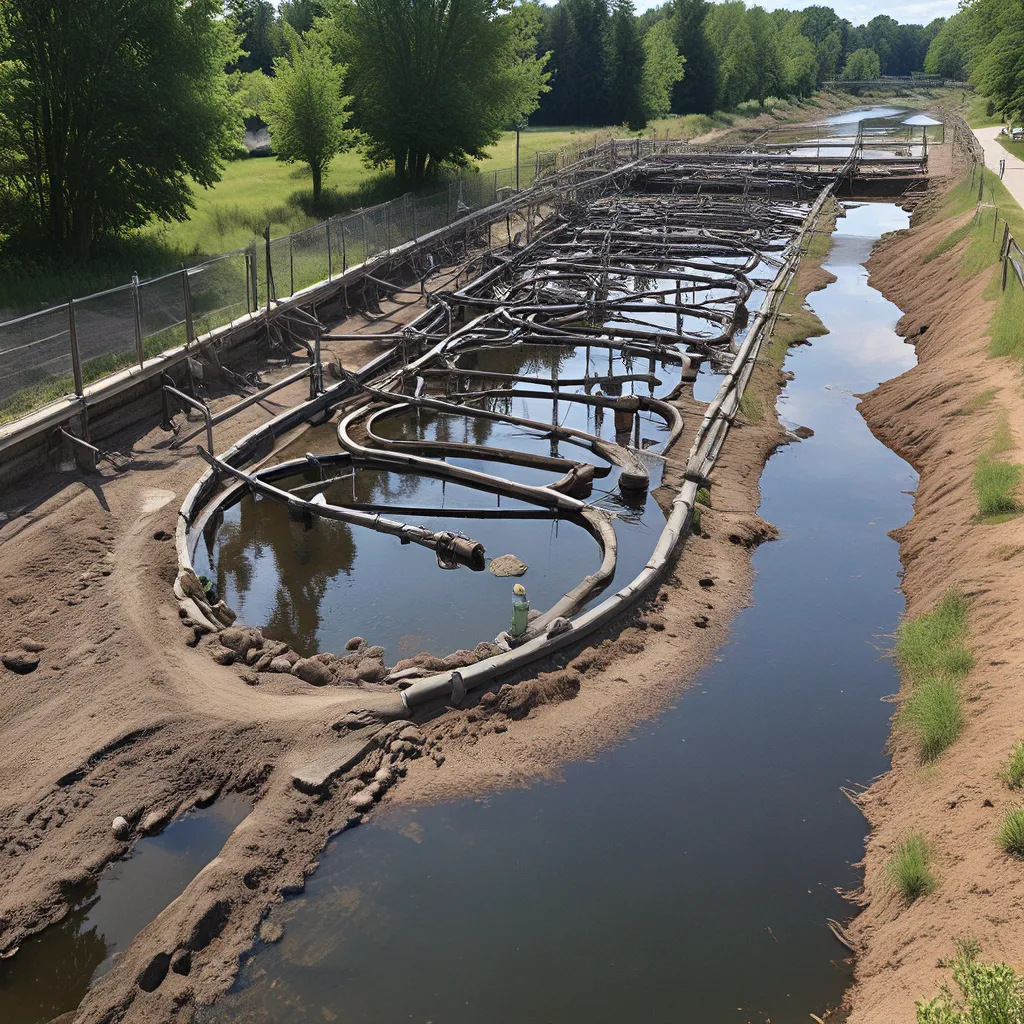
As the world grapples with the pressing environmental challenges of our time, the role of wastewater treatment has become increasingly vital in the quest for a sustainable future. It’s a fascinating intersection of science, technology, and community engagement – one that I’ve had the privilege of exploring in-depth.
The Importance of Wastewater Treatment
To put it simply, wastewater treatment is the process of removing contaminants from used water before it’s discharged back into the environment. This is crucial for safeguarding our precious natural resources and protecting the delicate balance of our ecosystems. By treating wastewater, we can prevent harmful pollutants from seeping into our rivers, lakes, and groundwater, ensuring that the water we rely on for drinking, agriculture, and recreation remains clean and safe.
But the true significance of wastewater treatment goes far beyond just the scientific and technical aspects. It’s a powerful tool for fostering community stewardship and environmental awareness. When people understand the importance of properly managing our wastewater, they’re more likely to become active participants in the solution – and that’s where the real magic happens.
Engaging the Community: A Holistic Approach
Engaging the community in the wastewater treatment process is not just a nice-to-have; it’s an essential component of long-term sustainability. By involving residents, businesses, and local organizations, we can cultivate a shared sense of responsibility and ownership over the health of our waterways.
One of the most effective ways to achieve this is through public outreach and education. By hosting community events, creating informative materials, and collaborating with local schools, we can demystify the wastewater treatment process and empower people to become active stewards of their environment.
Studies have shown that when people understand the critical role they play in the wastewater treatment cycle – from the products they use to the way they dispose of their waste – they’re more likely to adopt sustainable practices and support infrastructure investments.
Fostering a Culture of Sustainability
But engagement goes beyond just educating the public. It’s about fostering a culture of sustainability within the community – one where every individual and organization takes an active role in protecting our shared natural resources.
This might involve partnering with local businesses to implement green procurement policies, encouraging the use of eco-friendly products, or supporting the development of decentralized wastewater treatment systems that bring the solution closer to the source. It could also mean collaborating with community groups to organize beach cleanups, tree-planting initiatives, or other hands-on conservation efforts.
By investing in these types of community-based programs, we can not only improve the quality of our wastewater, but also foster a deeper sense of connection and responsibility among residents. It’s a holistic approach that aligns with the principles of sustainable development – meeting the needs of the present without compromising the ability of future generations to meet their own needs.
The Power of Collaboration
Of course, fostering this kind of community engagement and sustainability isn’t always easy. It requires a concerted effort from a wide range of stakeholders, including local government, utilities, businesses, and community organizations. But when we come together, the potential for positive change is truly remarkable.
Research suggests that by collaborating on wastewater treatment initiatives, communities can not only improve environmental outcomes but also unlock a range of social and economic benefits. These can include job creation, increased property values, and enhanced quality of life for residents.
Embracing the Future of Wastewater Treatment
As we look to the future, the landscape of wastewater treatment is likely to evolve in exciting and innovative ways. From advancements in water reuse and recycling to the integration of renewable energy technologies, the possibilities for sustainable, community-driven solutions are endless.
But at the heart of it all, the key to success will be our ability to engage the public and foster a sense of shared responsibility. By empowering communities to become active stewards of their local environments, we can create a more resilient and sustainable future – one where the health of our waterways is a source of civic pride and collective action.
And who knows, maybe someday soon, you’ll be able to visit your local Alpha Wastewater facility and see firsthand the remarkable transformation taking place. It’s an exciting prospect, and one that I’m truly honored to be a part of.